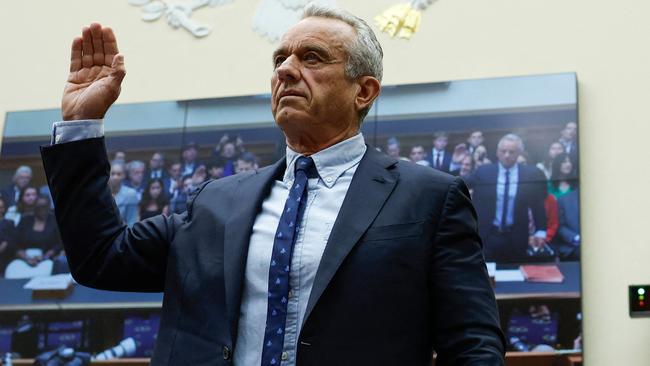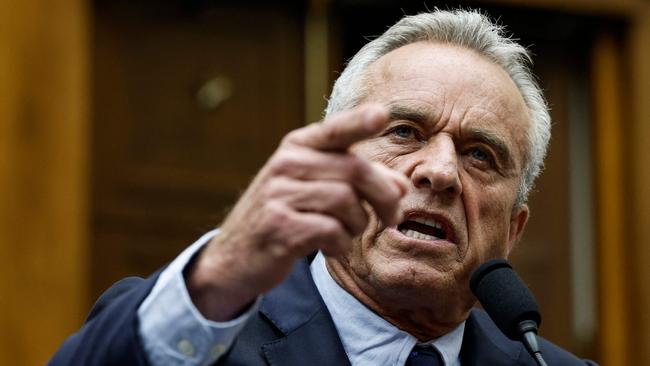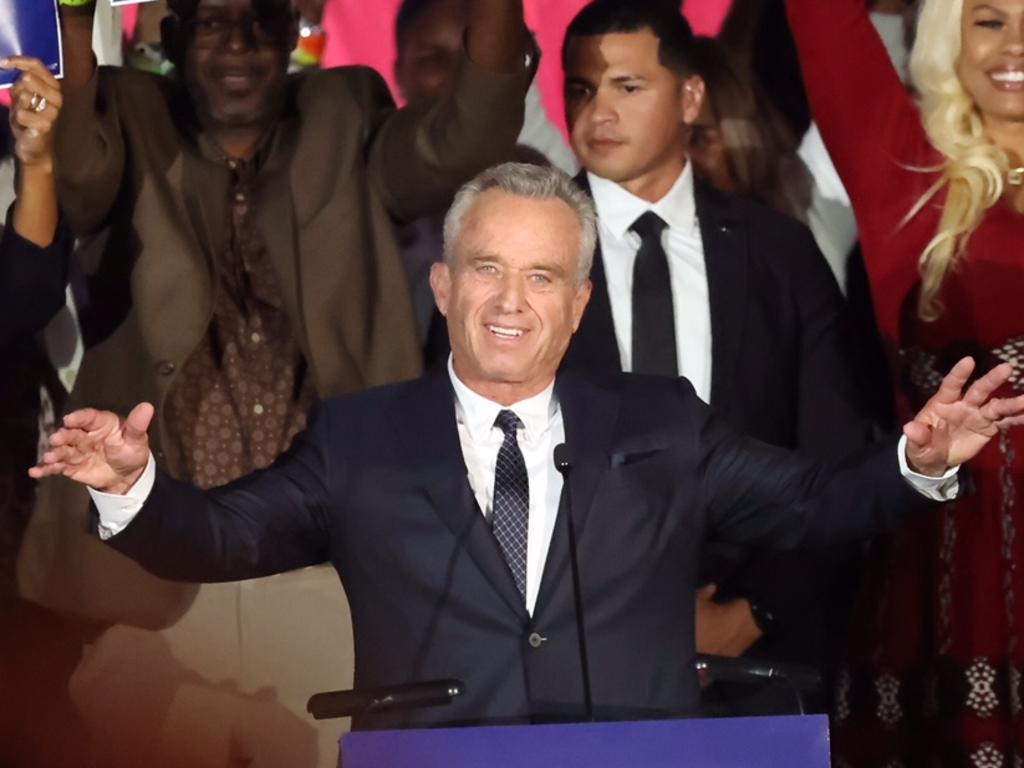Democrat hopeful Robert F. Kennedy Jr warns on ‘censoring’ powers
Democrat presidential candidate Robert F. Kennedy has warned Australia of the risks of empowering the federal government to police speech on social media.

Democrat presidential candidate Robert F. Kennedy has warned Australia of the risks of empowering the federal government to police speech on social media, arguing “totalitarian elements” in liberal societies were amassing too much power.
Mr Kennedy, a free-speech advocate and long-time vaccines critic, said democracies were “very rare in human history and difficult to maintain”, when asked about looming bills in the UK and Australia that would empower governments to censor “misinformation” and “disinformation”.
“Every country that wants to actually maintain a democracy needs to understand the inclination of powerful totalitarian elements in society that want to leverage ‘crazies’, concocted or real, in order to eliminate constitutional basic rights, and increase their power and wealth,” he told The Weekend Australian on Friday (AEST).
Mr Kennedy, first cousin of US ambassador to Australia Caroline Kennedy and nephew of assassinated US president John F. Kennedy, was speaking after a fiery congressional hearing to which he was called by Republicans to talk about alleged censorship of him by the US government during the pandemic.
Congress Democrats aggressively targeted Mr Kennedy, who came under attack this week as a racist and anti-Semite after comments he made at a dinner emerged, suggesting races were affected differently by Covid-19, which could have been a bioweapon.
“I have never uttered a phrase that was either racist or anti-Semitic,” he told the Weaponisation of Government committee set up by Republicans to probe alleged bias against conservatives within the federal government.
Mr Kennedy, an environmental lawyer turned trenchant critic of Covid-19 vaccines and mandates, launched his campaign in April on a platform of ending the war in Ukraine and pushing back against what he calls “regulatory capture” of US government agencies by large corporations.
A Louisiana court this month struck down the US government’s ability to pressure or request social media companies to take down “misinformation”, citing the first amendment of the US constitution, prompting a political firestorm and an appeal by the Biden administration.

“I’m aware that the same thing is happening in the EU, and I’m aware that in fact the US has signed a national security order that encourages Western nations to co-ordinate controlling messaging,” he said, referring to the growing number of new and potential laws in the West seeking to curb certain “dangerous” speech.
“It shocked me, it shocked me,” he added, when asked for his view on Australia’s Covid-19 response, which in 2021 also attracted criticism from Florida Governor Ron DeSantis, a Republican challenger for president polling about the same level as Mr Kennedy in the opposing party.
The government has proposed a misinformation and disinformation bill, along the lines of a similar bill in the UK, that would give it power to order social media companies to censor speech it believed posed a threat to Australians’ health, the environment, or any economic or financial harm.
Mr Kennedy, 69, said Western societies were becoming more like China, which strictly controls online speech.
He had been polling just under 20 per cent nationally among Democrats, but a recent poll in New Hampshire, a critical early state in the primary calendar next year, put him at 9 per cent.








To join the conversation, please log in. Don't have an account? Register
Join the conversation, you are commenting as Logout